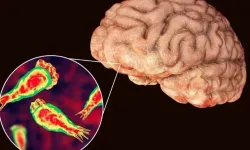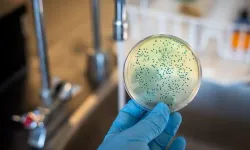Stating that while the correct selection and follow-up of screening and diagnostic tests performed during pregnancy is of great importance, family members should be aware and even receive genetic counseling before and from the beginning of pregnancy, the genetic diseases evaluation specialist said that results can be reached in an average of 7 days with genetic screening tests in the diagnosis of prenatal chromosomal disorders.
Pregnancy over 35 years of age, abnormal maternal serum screening result, fetal anomalies detected by ultrasound, chromosomal anomaly in the previous child, child with learning disabilities in the family, parents with balanced chromosomal anomaly, family history of a genetic disease that can be determined by biochemical or DNA analysis, risk of neural tube defect (NTD), family history of X-chromosome-related disease can be screened for prenatal diagnosis."
Stating that screening is performed in the 15th and 16th weeks of pregnancy for chromosomal disorders, biochemical screening and DNA analysis through amniocentesis, the expert said, "These tests can also be performed in the 10th-14th weeks. Screening tests performed from maternal serum, especially for autosomal chromosomal tests, are a necessary indication for chromosome analysis in terms of trisomy-21 (Down syndrome), trisomy-13 (Patau syndrome), trisomy-18 (Edwards syndrome).
Ideally, these screening tests should be performed at 11-13 weeks of the first trimester. Today, non-invasive prenatal diagnostic (NIPT) chromosome analysis can be performed from the mother's blood starting at the 10th week of gestation for chromosome 21, 13 and 18 anomalies, both trisomy and structural disorders. On average, results can be obtained within 7 days.
The NIPT screening test can diagnose trisomy-21, trisomy-13, trisomy-18, trisomy-X, Turner syndrome, Klinefelter syndrome, Jacobs syndrome as well as 1p36 deletion, 4p-, 5p-, 5q11, 22q11 (Di-George syndrome). This method is non-invasive for the mother as it only screens through blood sampling.
Chromosomal studies can be performed by separating fetal DNA from maternal blood, as well as next-generation sequencing of the entire genome, which allows the necessary diagnosis to be made.Recent studies have brought the reliability rate of this test very close to 100 percent. In these applications, the relevant physician and medical geneticist should evaluate the patient and the family and the expectant mother should be guided about which test should be performed with genetic counseling."















